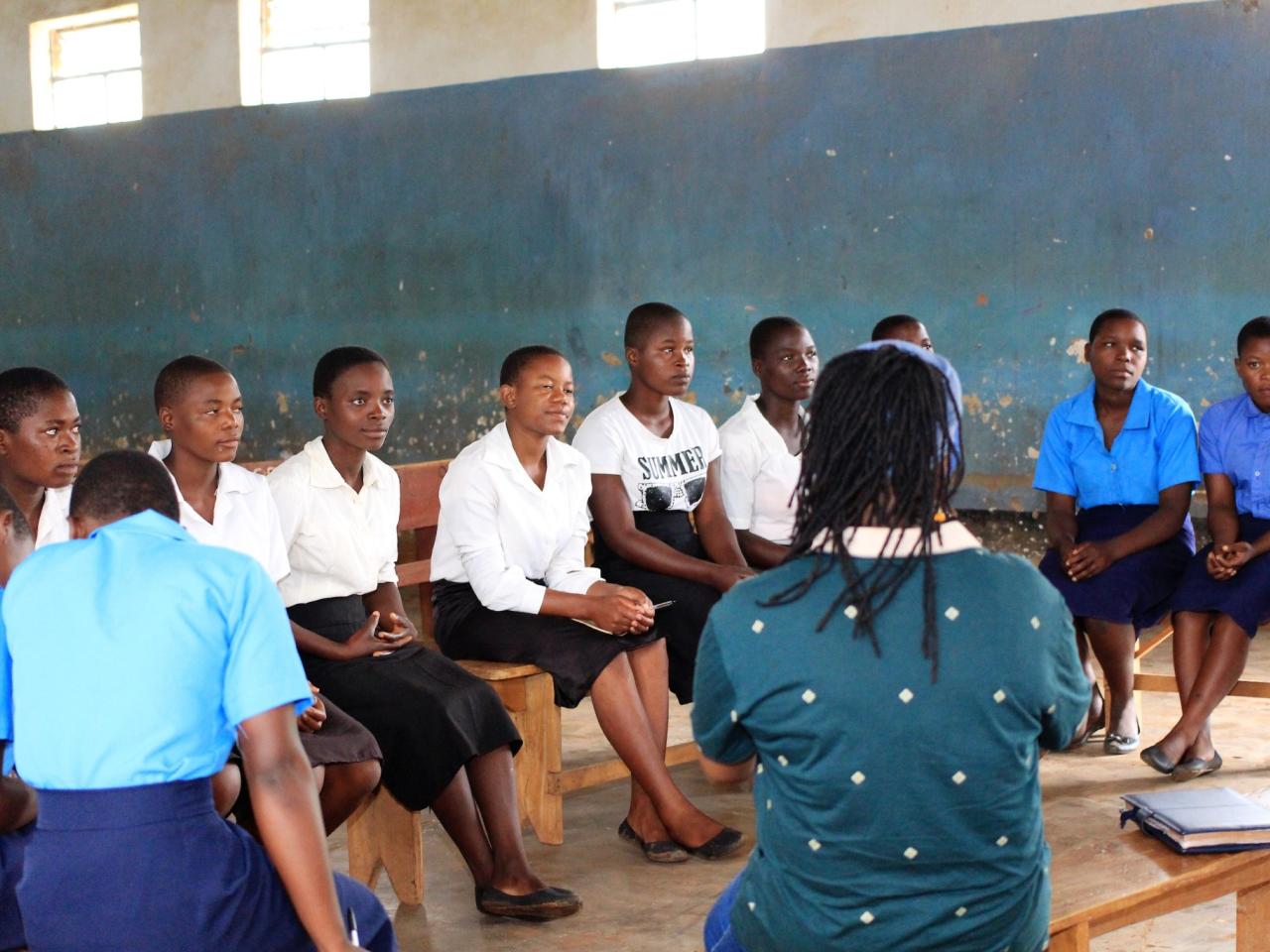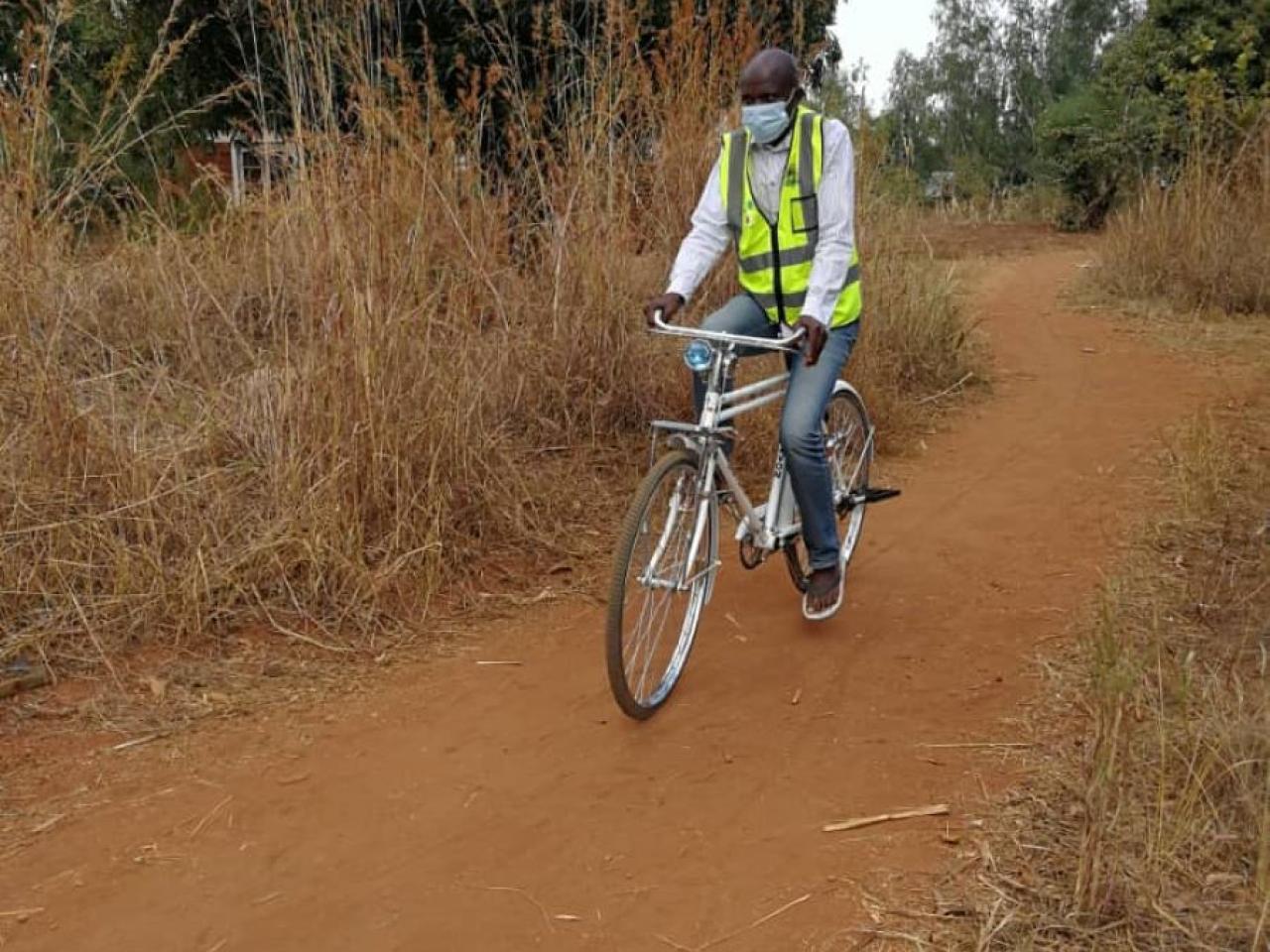Chain of care: seeking justice for child survivors of sexual violence in Malawi
NSANJE DISTRICT, Malawi - Until last year, 8-year-old Fanny* spent most of her time playing with friends and going to school. Senior Group Village Headman Chikhawo Yobu* describes her as a friendly and cheerful girl, who due to her disability needs additional support from family.
One evening, Fanny was playing just a few metres from her compound when a man from her village asked her to fetch him some drinking water. When Fanny obliged, he took her into an abandoned house and raped her.
Fanny’s disability meant she couldn’t shout for help, so it wasn’t until her friends went looking for her and discovered her with the man that they understood what had happened.
Sadly, women and girls with disabilities often face an increased risk of violence, including sexual violence. Studies indicate that women with disabilities are sexually assaulted at a rate at least twice that of the general population of women, and often face additional barriers in accessing justice and medical care.
“Harmful traditional practices and beliefs are a major contributing factor to these cases in Nsanje. We need more efforts to change people’s mindsets." - Nsanje Magistrate
A united front
Fanny’s friends reported the incident to her aunt, who in turn reported it to village authorities. When the news reached Mr. Yobu, he contacted the Tengani Police Unit.
Fanny was taken to Tengani Health Centre for medical checks, where a medical report corroborated the rape. She was also provided with medication, including post-exposure prophylaxis (PEP) to prevent the transmission of sexually transmitted infections, and was referred to Nsanje One-Stop Centre for additional support.
The perpetrator was initially apprehended but fled to Mozambique while on bail.
Frustrated by the lack of justice, a senior chief referred the case to the Spotlight Initiative district office who worked with the District Social Welfare team in Nsanje to meet with Fanny, the police and the court magistrate involved in the case. It emerged that community leaders and witnesses had not been present at the bail hearing because they had not been given critical information such as court session times. The team was shocked to learn that Fanny’s guardian had forgotten to give Fanny the full dose of PEP, so she had not completed her course of medication. They arranged for school authorities to take Fanny to a health facility for immediate care.
After consultations with the team, the police issued a warrant of arrest for Fanny’s attacker despite the expense of involving their Mozambican counterparts. The man was finally located and returned to Malawi by Tengani Community Police to stand trial.
Throughout the trial, Spotlight Initiative provided support to witnesses and prosecution, and ensured that critical information such as court session times reached the witnesses. They also provided transportation for witnesses from their village to the court. After hearing the case, Nsanje Magistrate Court sentenced the man to 12 years in prison.
"We worked hard to see that the case took shape. It’s a relief now that judgement has been passed, it will serve as a warning to other men with ill intentions.” - Senior Group Village Headman Chikhawo Yobu
The magistrate spoke about the need to dispel the beliefs that lead to violence against women and girls.
“Harmful traditional practices and beliefs are a major contributing factor to these cases in Nsanje,” he said. “We need more efforts to change people’s mindsets. Traditional healers deceive people [by telling them] that if they sleep with a minor, they will be healed of illness... We hope the Spotlight Initiative will help us with interventions to change these behaviours.”
Mr. Yobu could not hide his joy at the outcome.
“Together with the Spotlight Initiative, we worked hard to see that the case took shape. It’s a relief now that judgement has been passed, it will serve as a warning to other men with ill intentions,” he said.
Most importantly, Fanny is healthy and doing well at school. She continues to receive psychosocial support from child protection workers through the District Social Welfare team.
Justice for all
In all Spotlight Initiative districts of Malawi, cases of gender-based violence are followed up with the magistrate’s office and Malawi Police Prosecution Office to ensure that survivors are not silenced, and that their cases do not slip through the cracks. Child protection workers communicate information to witnesses so that they can report to court and avoid delays. This also prevents perpetrators who pose a flight risk, such as Fanny’s attacker, from being granted bail.
This year, the team has followed up on 60 cases of gender-based violence in Nsanje alone to ensure that all survivors receive psychosocial support. Fifteen cases have resulted in a conviction – almost twice as many convictions as during the previous year.
Awareness-raising to dispel beliefs that contribute to violence are also taking place in Nsanje. Gender sensitization sessions have been attended by more than 5000 people in the district.
By Nomsa Taulo and Aubrey Juvencio Chaguzika
*Names have been changed to protect identities.


